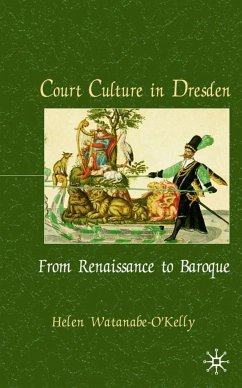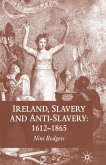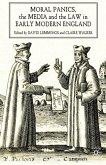This is the first cultural history of Baroque Dresden, the capital of Saxony and the most important Protestant territory in the Empire from the mid-sixteenth to the early eighteenth century. Helen Watanabe-O'Kelly shows how the art patronage of the Electors fits into the intellectual climate of the age and investigates its political and religious context. Lutheran church music and architecture, the influence of Italy, the cabinet of curiosities and the culture of collecting, alchemy, mining and early technology, official image-making and court theatre are some of the wealth of colourful subjects dealt with during the period 1553 to 1733.
'Professor Watanabe-O'Kelly's investigation - under the general rubric of court culture - offers far more than one might first expect. This is political history as well as art history, cultural history as well as intellectual history. Her text and pictures order the vast collections assembled over almost two hundred years and explain the varying logic behind how they were gathered and exhibited together. Yet her analysis never dulls the sense of amazement and wonderment these princes - and their servants - worked so hard to fashion...[F]ew have produced descriptions of the poetics of power that range so widely and probe so deeply.' - Professor Mary Lindemann, Carnegie Mellon University
'This new Publication can be seen as a milestone...The wealth of detail contained in Professor Watanabe-O'Kelly's survey will fascinate both the general reader and the cultural historian and open up a wide range of areas for further study.' - Jill Bepler, Herzog August Bibliothek Wolfenbüttel
'...a scholarly, original, important and well-illustrated study...'- Tim Blanning, Times Literary Supplement
'Helen Watanabe-O'Kelly's work deserves praise. This book will doubtlessly inspire other scholars to pursue further research on many subjects she considers...the clear and concise introduction to so many activities and aspects of the material culture at the court also make it a useful introduction for any student and scholar who is interested in early modern courtculture throughout Europe.' - H-Net Reviews (H-German)
'This new Publication can be seen as a milestone...The wealth of detail contained in Professor Watanabe-O'Kelly's survey will fascinate both the general reader and the cultural historian and open up a wide range of areas for further study.' - Jill Bepler, Herzog August Bibliothek Wolfenbüttel
'...a scholarly, original, important and well-illustrated study...'- Tim Blanning, Times Literary Supplement
'Helen Watanabe-O'Kelly's work deserves praise. This book will doubtlessly inspire other scholars to pursue further research on many subjects she considers...the clear and concise introduction to so many activities and aspects of the material culture at the court also make it a useful introduction for any student and scholar who is interested in early modern courtculture throughout Europe.' - H-Net Reviews (H-German)








